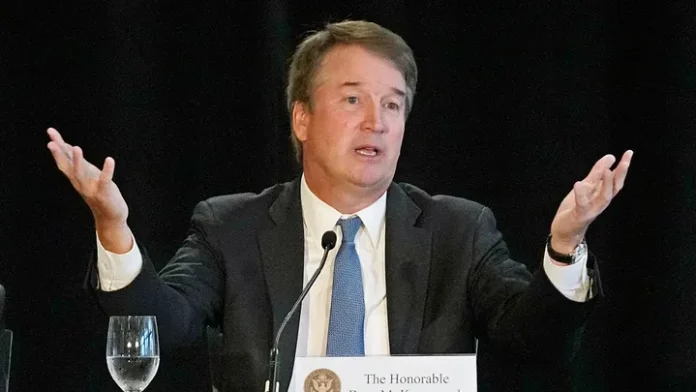The U.S. Supreme Court inadvertently published a draft opinion on a crucial abortion case concerning Idaho’s laws and emergency medical treatment protocols. The opinion in question was briefly made available on the Court’s website on Wednesday morning before being swiftly removed.
Moyle v. United States (No. 23-726) and Idaho v. United States (No. 23-727), revolves around whether Idaho hospitals must perform abortions in emergency situations despite state laws banning such procedures. Bloomberg News initially reported on the incident, noting that the draft opinion hinted towards a potential alignment with the federal government’s stance. This would imply that hospitals in states with strict abortion restrictions might be compelled to provide abortions during emergencies while legal proceedings continue.
Court spokeswoman Patricia McCabe confirmed to Fox News Digital that the opinion has not yet been officially released. In her statement, she clarified, “The opinion in Moyle v. United States and Idaho v. United States has not been released. The Court’s Publications Unit inadvertently uploaded a document briefly to the Court’s website. The Court’s official opinion on the matter will be issued in due course.”
The version of the opinion mistakenly posted suggested that the Supreme Court may lean towards supporting the federal government’s argument. It indicated that the case should not be decided conclusively at this stage since lower courts had not yet fully adjudicated it. Instead, it suggested that the issue should return to a federal court of appeals for further consideration.
During oral arguments in April, the Court’s direction was not definitively clear from the public sessions. Justices Brett Kavanaugh and Amy Coney Barrett posed probing questions to both sides, reflecting the complex legal and ethical considerations at stake.
Idaho officials have argued vehemently that hospitals should not be compelled by the Biden administration to perform abortions in emergency situations if state laws prohibit the procedure except to save the life of the mother. This stance aligns with Idaho’s stringent restrictions on abortion.
Conversely, the Justice Department has contended that under the federal Emergency Medical Treatment and Labor Act (EMTALA), healthcare providers are obligated to administer “stabilizing treatment,” including abortions, when necessary to address emergency medical conditions. This obligation persists even if doing so conflicts with state-level abortion regulations.
The legal dispute underscores broader tensions between federal and state authority over healthcare policies, particularly regarding sensitive issues like abortion rights. The Supreme Court’s eventual decision in Moyle v. United States and Idaho v. United States could have profound implications for abortion access and healthcare practices nationwide.
The case has drawn significant attention and scrutiny due to its potential to shape reproductive rights and healthcare policy across the United States. Advocacy groups on both sides of the abortion debate are closely monitoring developments, anticipating the Court’s ruling as a potential landmark decision.
The inadvertent release of the draft opinion added an unexpected twist to an already contentious legal battle. While the content of the opinion briefly made public hinted at the Court’s initial leanings, it remains to be seen how the final decision will unfold.
Legal experts and analysts continue to dissect the nuances of the arguments presented during oral arguments and the implications of the justices’ questions. The Supreme Court’s handling of this case will likely be scrutinized for its implications on constitutional law, federalism, and the balance of powers between states and the federal government.
The procedural misstep in publishing the draft opinion highlighted the complexities and meticulousness involved in the Supreme Court’s operations. Despite the error, the Court’s spokesperson assured the public that the official opinion will be released in accordance with established protocols and after thorough consideration of all legal arguments and precedents.
legal community awaits the Supreme Court’s definitive ruling, the case serves as a focal point in ongoing debates over reproductive rights, healthcare access, and the role of governmental regulations in medical emergencies. The outcome will undoubtedly reverberate through legislative and judicial arenas, shaping future legal interpretations and public policy decisions.
The Supreme Court’s accidental release of a draft opinion in the Idaho abortion case underscores the high stakes and complexities involved in adjudicating contentious issues at the intersection of law, ethics, and healthcare. The incident has intensified public interest in the case and underscored the significance of the Court’s forthcoming decision for legal precedent and national policy.























